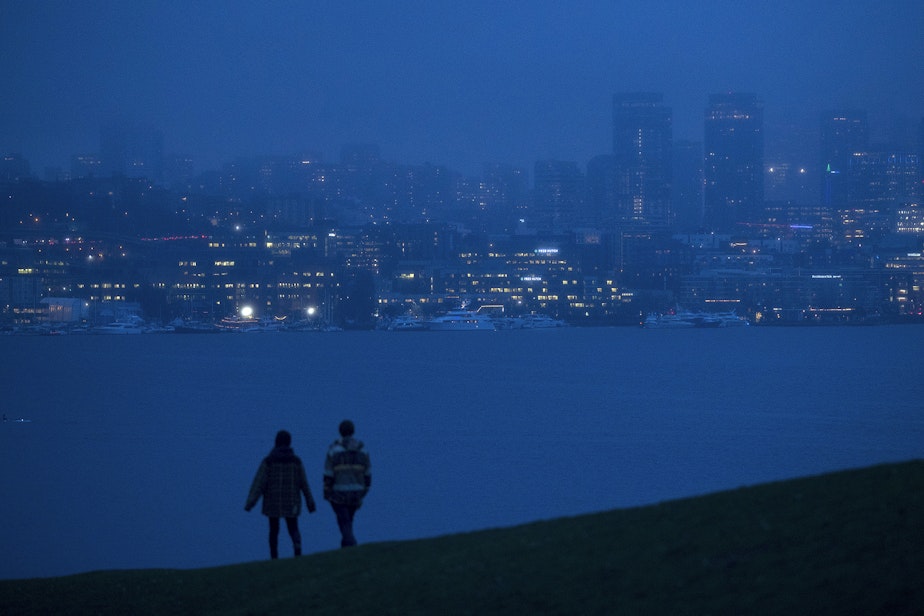Efforts continue to flatten the coronavirus curve

Although it might feel like it's been months, we're actually still in the early days of what could be a drawn out COVID-19 emergency in Washington state and the rest of the U.S.
In the latest move from Washington state, evictions due to late rent payments are banned, to help people who are out of work and struggling because of the outbreak.
KUOW’s Paige Browning is here to remind us about what we need to know today. Let's start with the big news today, evictions are now banned here in Washington State. What should people know about that?
Governor Jay Inslee has just announced that landlords are prohibited from evicting tenants who are late on their payments. That's in place for 30 days. And, he's told utilities not to shut off power or water to people who are late on payments and waive late fees to people who are out of work:
“Folks who have been involved in the sit down service in our restaurants and our bars, those who missed large gap because of this, this has caused some real economic hardship for our family and our small businesses and our large business. So, we want to do what we can do to help them.”
It feels like we're getting more announcements all the time. How does this fit into the bigger picture of how the outbreak is being handled?
Things are changing pretty much every day, but what we know is a lot of help is on the way now. Small businesses, for example, are able to apply for disaster relief from the federal government or apply for grants from the city of Seattle.
There are grants available to Seattle artists, and the state has dedicated more than $200 million to coronavirus response, which is already being divvied out.
We're also seeing businesses step up in different ways. Amazon, for example, has donated $50,000 to the coronavirus isolation building in Kent.
Some employers are finding ways to keep paying workers even if they're closed, we've seen some bosses give up their own salary to pay workers.
We've seen the tone on the story shift page as the outbreak progresses. How are you interpreting the tone this week so far?
The focus is heading more toward how do we get through this? People need to be prepared to live this way for months. On this note, Mayor Jenny Durkan had a message today for the Trump administration:
“Nationally, I think we need a bolder plan to put money in the pockets of workers and create jobs. We don't just have to get through this. We have to come out of this stronger than ever before.”
So the message isn't will this worsen? It's that it will worsen and we need to prop up people and businesses to get through it.
And as for the outbreak itself, what's happening today?
Well, today in Washington another county is dealing with a very difficult situation of having its first coronavirus related death. This is in Pierce County, where officials announced that a Puyallup woman who was in her 50's has died. She did have underlying health conditions.
Pierce County Executive Bruce Dammeier talked about her during a news conference today:
“She was not a number. She was a beloved daughter. She was a mother. She was an incredible community volunteer and active in her daughter's school. And I think it's important that we remember that, that there's a family that's grieving today, there's a community that's grieving today and all of Pierce County is grieving for her loss today.”
I thought this was a powerful message, Kim. They're saying this outbreak is not about numbers. This is about real, individual people.
How about the efforts to slow the spread of coronavirus? Are we going to have a shelter in place order? That's a big question on many people's minds.
State officials and Seattle officials have not said whether this will happen. We know Governor Jay Inslee is studying whether to enforce a lock-down. That would mean people are ordered to stay home unless it's necessary to leave.
That's what we're seeing in San Francisco now. We have not gotten this order, but we're going to keep following hints on whether that will happen for Washington.
Listen to the interview by clicking the play button above.






